Media Coverage

Marketer Intel
This is a special bonus episode. Many of you know I host a weekly live stream for Cornett called Digging Deeper that is also a podcast. Before we launched this show, Winfluence, we had a few interviews specific to influence and influence marketing I wanted to make sure were available to you here.
The first one of those I’ve pulled together is with author Neal Schaffer. His new book The Age of Influence, is a great resource for anyone wishing to understand influencer marketing from a process standpoint. From strategy to tactics, Neal shares the how tos and examples of those doing it well.
Schaffer teaches Executive Education at Rutgers Business School.
The first one of those I’ve pulled together is with author Neal Schaffer. His new book The Age of Influence, is a great resource for anyone wishing to understand influencer marketing from a process standpoint. From strategy to tactics, Neal shares the how tos and examples of those doing it well.
Schaffer teaches Executive Education at Rutgers Business School.

American Marketing Association
Researchers from Rutgers University and New York University published a new paper in the Journal of Marketing that explores the phenomenon of user-generated content during experiences.
The study, forthcoming in the Journal of Marketing, is titled “Generating Content Increases Enjoyment by Immersing Consumers and Accelerating Perceived Time” and is authored by Gabriela Tonietto and Alixandra Barasch.
“Enjoy the moment. Put down your phone.” The media is full of headlines telling consumers that to truly enjoy themselves and their experiences, the first step is to ditch their cellphones. Yet this advice often appears to fall on deaf ears. Major events routinely coincide with huge surges in social media posts as millions tweet during experiences like the Super Bowl and World Cup. This poses something of a conundrum. People clearly generate large amounts of content—remarking on what they are currently doing, hearing, and seeing—as experiences unfold, but is this behavior helpful or harmful?
The study, forthcoming in the Journal of Marketing, is titled “Generating Content Increases Enjoyment by Immersing Consumers and Accelerating Perceived Time” and is authored by Gabriela Tonietto and Alixandra Barasch.
“Enjoy the moment. Put down your phone.” The media is full of headlines telling consumers that to truly enjoy themselves and their experiences, the first step is to ditch their cellphones. Yet this advice often appears to fall on deaf ears. Major events routinely coincide with huge surges in social media posts as millions tweet during experiences like the Super Bowl and World Cup. This poses something of a conundrum. People clearly generate large amounts of content—remarking on what they are currently doing, hearing, and seeing—as experiences unfold, but is this behavior helpful or harmful?

ROI
The premise seemed obvious. When the state went on lockdown and working parents not only had to work at home, but care for their children at the same time, the general consensus was that the woman’s job — and her lifestyle — would take the bigger hit.
“We thought women were going to get screwed in all of this,” Kristina Durante said.
Durante, the director of research at the Center for Women in Business at Rutgers Business School, and her colleagues were stunned to learn this wasn’t the case. In fact, many women in their study reported they had a higher job satisfaction than they did in pre-pandemic times.
This satisfaction, however, was tied to one key factor: How much their male partners helped around the house and with the kids.
“We found that men’s increased contributions at home have a positive influence on women’s job satisfaction and productivity,” Durante said. “When dads play a bigger role in child care and doing routine housework, it puts both parents in a better position to succeed at work.”
Durante, who authored the study along with Yana van der Meulen Rodgers, Lisa Kaplowitz, Elaine Zundl, and Seveincqul Ulu, said the group expected an opposite outcome.
“We thought women were going to get screwed in all of this,” Kristina Durante said.
Durante, the director of research at the Center for Women in Business at Rutgers Business School, and her colleagues were stunned to learn this wasn’t the case. In fact, many women in their study reported they had a higher job satisfaction than they did in pre-pandemic times.
This satisfaction, however, was tied to one key factor: How much their male partners helped around the house and with the kids.
“We found that men’s increased contributions at home have a positive influence on women’s job satisfaction and productivity,” Durante said. “When dads play a bigger role in child care and doing routine housework, it puts both parents in a better position to succeed at work.”
Durante, who authored the study along with Yana van der Meulen Rodgers, Lisa Kaplowitz, Elaine Zundl, and Seveincqul Ulu, said the group expected an opposite outcome.

Forbes
By: Kristina Durante, Yana van der Meulen Rodgers, Lisa Kaplowitz, Elaine Zundl, and Sevincgul Ulu
The COVID-19 pandemic radically changed both the corporate workplace and our home life overnight. For employees with the luxury of telecommuting, the initial phase of the pandemic had highs and lows. Working from home and the absence of a long commute provided the opportunity to be more productive than before.
However, for many, the “home” office was not a place of quiet isolation. It was a place where work and home life were no longer balanced, but in direct overlap. The significant increase in unpaid labor inside the home blurred the lines between paid and unpaid household labor. COVID-19 hit women particularly hard in terms of job losses, increased care responsibilities at home, and heavy representation among low-wage workers on the front lines.
The COVID-19 pandemic radically changed both the corporate workplace and our home life overnight. For employees with the luxury of telecommuting, the initial phase of the pandemic had highs and lows. Working from home and the absence of a long commute provided the opportunity to be more productive than before.
However, for many, the “home” office was not a place of quiet isolation. It was a place where work and home life were no longer balanced, but in direct overlap. The significant increase in unpaid labor inside the home blurred the lines between paid and unpaid household labor. COVID-19 hit women particularly hard in terms of job losses, increased care responsibilities at home, and heavy representation among low-wage workers on the front lines.

Rutgers Today
As dads take on more childcare and chores, both parents do better in their jobs.
Juggling diaper changes and Zoom meetings might be a good combination for some Americans. A new survey by researchers at Rutgers University reveals that working parents are happier with their job, and they are getting more done, than people without children. Researchers attribute the surprising results to a sharp increase in the number of men helping with childcare and housework during the pandemic.
“We found that men’s increased contributions at home have a positive influence on women’s job satisfaction and productivity,” said Kristina Durante, director of research at the Center for Women in Business at Rutgers Business School. “When dads play a bigger role in childcare and doing routine housework, it puts both parents in a better position to succeed at work.”
Juggling diaper changes and Zoom meetings might be a good combination for some Americans. A new survey by researchers at Rutgers University reveals that working parents are happier with their job, and they are getting more done, than people without children. Researchers attribute the surprising results to a sharp increase in the number of men helping with childcare and housework during the pandemic.
“We found that men’s increased contributions at home have a positive influence on women’s job satisfaction and productivity,” said Kristina Durante, director of research at the Center for Women in Business at Rutgers Business School. “When dads play a bigger role in childcare and doing routine housework, it puts both parents in a better position to succeed at work.”

REHACARE INTERNATIONAL
A new study by Rutgers University researchers finds that job candidates with disabilities are more likely to make a positive first impression on prospective employers when they promote technical skills rather than soft skills, such as their ability to lead others.
The findings, published in the International Journal of Conflict Management, contrast this with the results for candidates without disabilities who were positively evaluated when they highlighted either hard or soft skills during initial job interviews.
"Job interviews are challenging for everyone, but particularly so for people with disabilities who have always had difficulties presenting themselves favorably to gain employment," said Rutgers Business School professor Mason Ameri.
"Influence tactics such as emphasizing your skills and abilities are a good idea but don't necessarily work the same way for everyone," said Terri Kurtzberg, co-author and professor at Rutgers Business School. "Instead, people with disabilities should focus on job-related hard skills and competencies instead of softer skills and warmth. This choice accelerated positive impressions of employability."
The findings, published in the International Journal of Conflict Management, contrast this with the results for candidates without disabilities who were positively evaluated when they highlighted either hard or soft skills during initial job interviews.
"Job interviews are challenging for everyone, but particularly so for people with disabilities who have always had difficulties presenting themselves favorably to gain employment," said Rutgers Business School professor Mason Ameri.
"Influence tactics such as emphasizing your skills and abilities are a good idea but don't necessarily work the same way for everyone," said Terri Kurtzberg, co-author and professor at Rutgers Business School. "Instead, people with disabilities should focus on job-related hard skills and competencies instead of softer skills and warmth. This choice accelerated positive impressions of employability."

ROI
Rutgers Business School’s Center for Urban Entrepreneurship and Economic Development has received a $300,000 grant from the U.S. Economic Development Administration to strengthen its efforts to build Black- and Latino-owned tech businesses, it announced this week.
“The Build to Scale grant completes the desired P-3 trifecta of funding from the public sector, a noteworthy philanthropic organization and individuals in the private sector,” Lyneir Richardson, executive director of the CUEED, said in a prepared statement. “All are committed now, with real money, to make early stage capital available to fuel tech startups and growth companies led by Black and Latino entrepreneurs.”
“The Build to Scale grant completes the desired P-3 trifecta of funding from the public sector, a noteworthy philanthropic organization and individuals in the private sector,” Lyneir Richardson, executive director of the CUEED, said in a prepared statement. “All are committed now, with real money, to make early stage capital available to fuel tech startups and growth companies led by Black and Latino entrepreneurs.”

New Jersey Business
Lyneir Richardson, assistant professor of professional practice at Rutgers Business School and executive director of its Center for Urban Entrepreneurship and Economic Development, says he is fascinated to see the level of resiliency and creativity of Black entrepreneurs in Newark right now.
“There are some phenomenal small success stories: [Individuals who own] a local clothing boutique, a local coffee shop, a local restaurant, and a service-oriented business who have become entrepreneurs by necessity because they have been laid off or furloughed from their jobs,” he says. “They have used the period of this pandemic and shutdown to form and imagine new ventures, and are able to get customers through Zoom calls.”
“There are some phenomenal small success stories: [Individuals who own] a local clothing boutique, a local coffee shop, a local restaurant, and a service-oriented business who have become entrepreneurs by necessity because they have been laid off or furloughed from their jobs,” he says. “They have used the period of this pandemic and shutdown to form and imagine new ventures, and are able to get customers through Zoom calls.”

USA Today
Some New Jersey students got a lesson in the pitfalls of virtual learning this week when their online classes were interrupted by obscenities, pornography and threats against teachers.
“If you have a public meeting where a password and link can be shared, that can cause problems,” said Jaideep Vaidya, director of the Rutgers Institute for Data Science, Learning, and Analytics. “People can log in from different accounts. They can share it with friends who are not even in school.”
“If you have a public meeting where a password and link can be shared, that can cause problems,” said Jaideep Vaidya, director of the Rutgers Institute for Data Science, Learning, and Analytics. “People can log in from different accounts. They can share it with friends who are not even in school.”

WE REP STEM
A new study from Rutgers University suggests disabled employees are more likely to create a positive first impression on a prospective employer if they promote their technical skills over their soft skills.
“Job interviews are challenging for everyone, but particularly so for people with disabilities who have always had difficulties presenting themselves favorably to gain employment,” Rutgers Business School professor Mason Ameri said in a statement.
“People with disabilities encounter an implicit bias that they will not be as productive as their non-disabled peers. Knowing how to navigate the conversation with potential employers is critical for leveling the playing field.”
“Influence tactics such as emphasizing your skills and abilities are a good idea but don’t necessarily work the same way for everyone,” said Terri Kurtzberg, co-author and professor at Rutgers Business School. “Instead, people with disabilities should focus on job-related hard skills and competencies instead of softer skills and warmth. This choice accelerated positive impressions of employability.”
“Job interviews are challenging for everyone, but particularly so for people with disabilities who have always had difficulties presenting themselves favorably to gain employment,” Rutgers Business School professor Mason Ameri said in a statement.
“People with disabilities encounter an implicit bias that they will not be as productive as their non-disabled peers. Knowing how to navigate the conversation with potential employers is critical for leveling the playing field.”
“Influence tactics such as emphasizing your skills and abilities are a good idea but don’t necessarily work the same way for everyone,” said Terri Kurtzberg, co-author and professor at Rutgers Business School. “Instead, people with disabilities should focus on job-related hard skills and competencies instead of softer skills and warmth. This choice accelerated positive impressions of employability.”

NJ.com
Suddenly, we all found ourselves at home with our kids a lot. And in every house with kids, there are opportunities for good deals that are being missed. Kids want what they want and have been studying you their whole lives to figure out which buttons to push to get the yes.
Parents sidestep potential negotiations because it seems so much easier to grasp for one of the Easy Three: give in, play the power card and refuse “because I said so,” or just split it. Parents are divided on which of these three is their most dominant response but all of us use all of these at one time or another. The giver-inners, the splitters and the refusers all have wanted to get out of the moment unscathed and preserve harmony in their homes and lives. These are short-term fixes with long-term costs: the problems tend to keep reoccurring (or even escalating), and each encounter drains us a little bit more. Parenting is one long series of things that require effort immediately for a longer-term payout; negotiating with your kids belongs on this list.
Parents sidestep potential negotiations because it seems so much easier to grasp for one of the Easy Three: give in, play the power card and refuse “because I said so,” or just split it. Parents are divided on which of these three is their most dominant response but all of us use all of these at one time or another. The giver-inners, the splitters and the refusers all have wanted to get out of the moment unscathed and preserve harmony in their homes and lives. These are short-term fixes with long-term costs: the problems tend to keep reoccurring (or even escalating), and each encounter drains us a little bit more. Parenting is one long series of things that require effort immediately for a longer-term payout; negotiating with your kids belongs on this list.

Money Geek
Structural inequality in American often financially penalizes communities of color. Across the country, many Black and Latino citizens pay more for services and expenses, including home loans, property taxes and even car insurance, based on location.
To learn more about how disparities in car insurance costs impact people of color, MoneyGeek analyzed 1,648 ZIP codes in 69 cities across the U.S., comparing demographics and auto insurance premiums. The study found that drivers living in predominantly white ZIP codes often pay less for car insurance than people living in the same cities in ZIP codes with a lower proportion of white residents.
MoneyGeek engaged academic thought leaders with expertise in structural inequality advocacy and economics to answer pressing questions about auto insurance. The opinions and solutions expressed below are the views of the individual subject matter experts.
MG: Do other factors used to set car insurance rates, such as driving record, credit score or vehicle type, disproportionately increase premiums for people of color?
Jerome Williams: I have no hard evidence that this is the case in the insurance industry, but I certainly have seen evidence of this in other sectors of the economy. I have been examining marketplace discrimination for over 40 years, and in our book “Consumer Equality: Race and the American Marketplace,” we offer an abundance of evidence that consumers of color are not treated equally in the marketplace.
To learn more about how disparities in car insurance costs impact people of color, MoneyGeek analyzed 1,648 ZIP codes in 69 cities across the U.S., comparing demographics and auto insurance premiums. The study found that drivers living in predominantly white ZIP codes often pay less for car insurance than people living in the same cities in ZIP codes with a lower proportion of white residents.
MoneyGeek engaged academic thought leaders with expertise in structural inequality advocacy and economics to answer pressing questions about auto insurance. The opinions and solutions expressed below are the views of the individual subject matter experts.
MG: Do other factors used to set car insurance rates, such as driving record, credit score or vehicle type, disproportionately increase premiums for people of color?
Jerome Williams: I have no hard evidence that this is the case in the insurance industry, but I certainly have seen evidence of this in other sectors of the economy. I have been examining marketplace discrimination for over 40 years, and in our book “Consumer Equality: Race and the American Marketplace,” we offer an abundance of evidence that consumers of color are not treated equally in the marketplace.

Rehab Management
Job candidates with disabilities are more likely to make a positive first impression on prospective employers when they promote technical skills rather than soft skills, such as their ability to lead others, Rutgers University researchers advise.
The findings, published in the International Journal of Conflict Management, contrast this with the results for candidates without disabilities who were positively evaluated when they highlighted either hard or soft skills during initial job interviews.
“Job interviews are challenging for everyone, but particularly so for people with disabilities who have always had difficulties presenting themselves favorably to gain employment.
“People with disabilities encounter an implicit bias that they will not be as productive as their non-disabled peers. Knowing how to navigate the conversation with potential employers is critical for leveling the playing field.”
— Rutgers Business School professor Mason Ameri, study co-author
“Influence tactics such as emphasizing your skills and abilities are a good idea but don’t necessarily work the same way for everyone. Instead, people with disabilities should focus on job-related hard skills and competencies instead of softer skills and warmth. This choice accelerated positive impressions of employability.”
— Terri Kurtzberg, co-author and professor at Rutgers Business School
The findings, published in the International Journal of Conflict Management, contrast this with the results for candidates without disabilities who were positively evaluated when they highlighted either hard or soft skills during initial job interviews.
“Job interviews are challenging for everyone, but particularly so for people with disabilities who have always had difficulties presenting themselves favorably to gain employment.
“People with disabilities encounter an implicit bias that they will not be as productive as their non-disabled peers. Knowing how to navigate the conversation with potential employers is critical for leveling the playing field.”
— Rutgers Business School professor Mason Ameri, study co-author
“Influence tactics such as emphasizing your skills and abilities are a good idea but don’t necessarily work the same way for everyone. Instead, people with disabilities should focus on job-related hard skills and competencies instead of softer skills and warmth. This choice accelerated positive impressions of employability.”
— Terri Kurtzberg, co-author and professor at Rutgers Business School

ROI
Yia Eason, Jessica Gonzalez and Barbara Heisler will be honored by the New Jersey Chamber of Commerce with the 2020 Alice H. Parker Women Leaders in Innovation awards.
Chamber CEO Tom Bracken said. “Each of our recipients embody the best of innovative thinking. They translated their new ideas into vibrant businesses that created jobs and expanded economic opportunities, and now they are using their leadership skills to help make New Jersey a better place.”
Eason created Olmec Toys, a multicultural toy company, in 1985 after discovering there were no Black superhero dolls on the market. She was motivated by her son, who said that he could never be a superhero because all superheroes are white.
After securing investors and developing her product, Eason was able to grow the company to $5 million in sales, with worldwide distribution in major retailers. Olmec’s success remains a case study for business school classes teaching multicultural marketing.
Chamber CEO Tom Bracken said. “Each of our recipients embody the best of innovative thinking. They translated their new ideas into vibrant businesses that created jobs and expanded economic opportunities, and now they are using their leadership skills to help make New Jersey a better place.”
Eason created Olmec Toys, a multicultural toy company, in 1985 after discovering there were no Black superhero dolls on the market. She was motivated by her son, who said that he could never be a superhero because all superheroes are white.
After securing investors and developing her product, Eason was able to grow the company to $5 million in sales, with worldwide distribution in major retailers. Olmec’s success remains a case study for business school classes teaching multicultural marketing.

ROI
“We have taken another giant step toward building a strong business school for the future of work,” Dean Lei Lei said in a prepared statement. “The STEM designation will provide our students with a competitive edge to excel on the job market, and our corporate partners will know they can hire the digital-era talent that they need to make data-driven decisions and become innovative leaders in their organizations.”
“The increasing demand for such skills allows Rutgers Business School to leverage its strengths in new ways to make this learning available to more students,” Doug Miller, associate dean of MBA programs and associate professor of management, said in a statement. “The ability to make data-driven decisions involves analysis of situations as well as data.
“The increasing demand for such skills allows Rutgers Business School to leverage its strengths in new ways to make this learning available to more students,” Doug Miller, associate dean of MBA programs and associate professor of management, said in a statement. “The ability to make data-driven decisions involves analysis of situations as well as data.

The Daily Targum
Gov. Phil Murphy (D-NJ) has appealed to the federal government for more grants and loans for the state. He’s right — New Jersey does need to borrow more from Washington, but it must eliminate its pension program first.
With the termination of the pension program, New Jersey would be free to use a federal loan to take adequate measures against the coronavirus pandemic, such as providing personal protective equipment (PPE) to workers and teachers. The state would also be able to provide public work to those unemployed due to the lockdown.
Public work is a reason why New Jersey has the amenities it does. Former President Franklin D. Roosevelt’s New Deal led to many of the services New Jerseyans rely on.
“For New Jersey, (Roosevelt's) call to action in confronting the Great Depression meant the construction of schools, post offices, roads and highways that are still in use today and are the result of the policies of the New Deal,” said Arthur Guarino, associate professor of professional practice in the Rutgers Business School.
With the termination of the pension program, New Jersey would be free to use a federal loan to take adequate measures against the coronavirus pandemic, such as providing personal protective equipment (PPE) to workers and teachers. The state would also be able to provide public work to those unemployed due to the lockdown.
Public work is a reason why New Jersey has the amenities it does. Former President Franklin D. Roosevelt’s New Deal led to many of the services New Jerseyans rely on.
“For New Jersey, (Roosevelt's) call to action in confronting the Great Depression meant the construction of schools, post offices, roads and highways that are still in use today and are the result of the policies of the New Deal,” said Arthur Guarino, associate professor of professional practice in the Rutgers Business School.

WSJ-Opinion
What a stellar portrayal of America at the Republican National Convention by a daughter of Indian immigrants, who I predict will be the first female president of this great country.
Why? Because she won’t run as a woman with all those allusions to glass ceilings, role models or identity politics. She will run instead like a Golda Meir, a Margaret Thatcher, an Angela Merkel or even an Indira Gandhi, the first female prime minister of the country of Ambassador Haley’s parents. Her slogan might be: “Vote for me because of what I will do for you and not for what I am.” Americans are wise enough to note that difference.
Watch for Haley’s comet in 2024.
Mark Castelino
Why? Because she won’t run as a woman with all those allusions to glass ceilings, role models or identity politics. She will run instead like a Golda Meir, a Margaret Thatcher, an Angela Merkel or even an Indira Gandhi, the first female prime minister of the country of Ambassador Haley’s parents. Her slogan might be: “Vote for me because of what I will do for you and not for what I am.” Americans are wise enough to note that difference.
Watch for Haley’s comet in 2024.
Mark Castelino
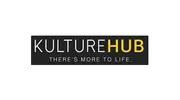
Kulture Hub
STEM innovation is not singular. It is usually a team working together to draw conclusions. Yes, the team is usually centered around a talented individual, but it is not just talent that creates innovation. It is looking at a problem through multiple perspectives or multiple lenses if you will. Groups of diverse problem solvers can outperform groups of high-ability problem solvers
I recently interviewed Dr. Mark Rodgers, the Assistant Professor of Supply Chain Management at Rutgers Business School. We discussed a range of topics covering Energy Systems, Demand Planning, Statistical Modeling, and Continuous Improvement of today’s energy infrastructure.
As we went further into the interview, we discussed his background. How did he choose a career in STEM and what his process was like?
“Right now, I’m one of the few African-American faculty members at Rutgers Business School. There aren’t many of us, unfortunately, and I’m the only one that does kind of analytical research, kind of more quantitative, the more STEM oriented type of work.”
I recently interviewed Dr. Mark Rodgers, the Assistant Professor of Supply Chain Management at Rutgers Business School. We discussed a range of topics covering Energy Systems, Demand Planning, Statistical Modeling, and Continuous Improvement of today’s energy infrastructure.
As we went further into the interview, we discussed his background. How did he choose a career in STEM and what his process was like?
“Right now, I’m one of the few African-American faculty members at Rutgers Business School. There aren’t many of us, unfortunately, and I’m the only one that does kind of analytical research, kind of more quantitative, the more STEM oriented type of work.”

CNBC
As the back-to-school season kicked off, retailers across the U.S. stocked stores with fresh outfits, notebooks, glue sticks and kid-sized masks.
So far, many say, those items have largely stayed on shelves as parents and students put off purchases, waiting for more clarity on what learning will look like this year.
Retailers may have psychology on their side — so long as they strike the right tone, said Ashwani Monga, a Rutgers University-Newark marketing professor who studies consumer psychology.
Monga said he’s seen the unique dynamics of the back-to-school season up close. At his college campus, most classes will be held remotely. At home, he said his family has waited to hear if his 15-year-old daughter will go back to school in person.
He said a sense of uncertainty weighs on shopping decisions, including his own. Even if school starts in person, he said, he’s seen outbreaks in other parts of the country that have forced kids to shift back to remote learning.
“You don’t even know when it starts, if it’s going to stay like that,” he said. “It has definitely pushed our own shopping back because you’re like ‘let’s wait and watch’ — and nothing is getting resolved.”
So far, many say, those items have largely stayed on shelves as parents and students put off purchases, waiting for more clarity on what learning will look like this year.
Retailers may have psychology on their side — so long as they strike the right tone, said Ashwani Monga, a Rutgers University-Newark marketing professor who studies consumer psychology.
Monga said he’s seen the unique dynamics of the back-to-school season up close. At his college campus, most classes will be held remotely. At home, he said his family has waited to hear if his 15-year-old daughter will go back to school in person.
He said a sense of uncertainty weighs on shopping decisions, including his own. Even if school starts in person, he said, he’s seen outbreaks in other parts of the country that have forced kids to shift back to remote learning.
“You don’t even know when it starts, if it’s going to stay like that,” he said. “It has definitely pushed our own shopping back because you’re like ‘let’s wait and watch’ — and nothing is getting resolved.”

NJ Spotlight
What was expected to be a state budget proposal filled with cuts and spending to blunt the impact of the COVID-19 pandemic contained at least one big surprise when Gov. Phil Murphy included a plan to give most newborns $1,000 in savings to start off their lives.
“One could argue that this is the right time to do something like this,” said Lisa Kaplowitz, assistant professor of professional practice in the finance and economics department at Rutgers Business School.
“Given that people in certain income brackets have been impacted by the pandemic to a greater extent because they have jobs they cannot do from home — health care, janitorial staff and others — and who don’t get paid if they do not go into work, providing even a small benefit to their children could make a difference to them,” she continued.
“There’s a lot of innovation that comes out of crisis,” Kaplowitz said. “Could this be an innovative concept to give folks in lower socioeconomic brackets an opportunity to start out when they become adults a tiny step less behind?”
Kaplowitz said that, depending on how the baby bonds program is structured, it could provide an even greater impact if individuals are allowed to add to the state’s initial deposit and have that grow with interest.
“One could argue that this is the right time to do something like this,” said Lisa Kaplowitz, assistant professor of professional practice in the finance and economics department at Rutgers Business School.
“Given that people in certain income brackets have been impacted by the pandemic to a greater extent because they have jobs they cannot do from home — health care, janitorial staff and others — and who don’t get paid if they do not go into work, providing even a small benefit to their children could make a difference to them,” she continued.
“There’s a lot of innovation that comes out of crisis,” Kaplowitz said. “Could this be an innovative concept to give folks in lower socioeconomic brackets an opportunity to start out when they become adults a tiny step less behind?”
Kaplowitz said that, depending on how the baby bonds program is structured, it could provide an even greater impact if individuals are allowed to add to the state’s initial deposit and have that grow with interest.

Scientific Sense Podcast
Listen to the podcast:
The Rise and Stall of stakeholder influence: How the digital age limits social control and Designing CSR Initiatives for Greater Social Impact.
Michael L. Barnett is a professor of Management & Global Business at Rutgers Business School and Academic Director of the Rutgers Institute for Corporate Social Innovation. Barnett currently serves as an International Research Fellow of the Oxford University Centre for Corporate Reputation, Distinguished Visiting Professor in the Social Innovations Group at EGADE Business School in Mexico, Affiliate Visiting Scholar at the Price College of Business at the University of Oklahoma, and Fellow of the Institute for Ethical Leadership at Rutgers University.
The Rise and Stall of stakeholder influence: How the digital age limits social control and Designing CSR Initiatives for Greater Social Impact.
Michael L. Barnett is a professor of Management & Global Business at Rutgers Business School and Academic Director of the Rutgers Institute for Corporate Social Innovation. Barnett currently serves as an International Research Fellow of the Oxford University Centre for Corporate Reputation, Distinguished Visiting Professor in the Social Innovations Group at EGADE Business School in Mexico, Affiliate Visiting Scholar at the Price College of Business at the University of Oklahoma, and Fellow of the Institute for Ethical Leadership at Rutgers University.

ROI
ROI Influencers: Higher Education 2020 — Deans and directors (A-L)
Lei Lei
Dean, Rutgers Business School
Rutgers University
Lei is not just the head of the state’s top business school, she’s regularly voted one of the school’s top professors. She was the founding director of the Rutgers Center for Supply Chain Management and is considered a national thought leader on the subject.
Lei Lei
Dean, Rutgers Business School
Rutgers University
Lei is not just the head of the state’s top business school, she’s regularly voted one of the school’s top professors. She was the founding director of the Rutgers Center for Supply Chain Management and is considered a national thought leader on the subject.
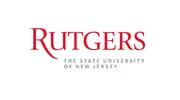
Rutgers University News
One week prior to Rutgers University-Newark’s official start of the 2020 fall semester, nearly 2,500 students received warm greetings from Newark’s mayor and Rutgers-Newark’s leaders and representatives during the university’s annual new-student Convocation on Mon., Aug. 24. In addition to Mayor Ras J. Baraka, students heard from Senior Vice Chancellor for Student Affairs Corlisse Thomas, Chancellor Nancy Cantor, Provost and Executive Vice Chancellor Ashwani Monga, Executive Vice Chancellor Sherri-Ann Butterfield, and Student Governing Association (SGA) President Dylan Terpstra. The event also included pre-recorded messages from Lei Lei, dean of Rutgers Business School; Jacqueline Mattis, dean of the School of Arts and Sciences–Newark; Bill McCarty, dean of the School of Criminal Justice; Charles Menifield, dean of the School of Public Affairs and Administration; Timothy Eatman, dean of the Honors Living-Learning Community; Deborah Walker-McCall, associate dean of the Academic Foundations Center; and Laura Troiano, acting director of the Honors College.

TaxProf Blog
It is hard to describe tax law succinctly. The federal Internal Revenue Code is over 6,000 pages and contains over 4 million words. As scholars who write about taxation, we are well aware of this challenge. Nevertheless, the 100-word summary that appeared on Invest in Education’s petitions accurately describes its proposed change to Arizona tax law.
The Arizona trial court held there were three tax-related problems with the 100-word summary. The trial court’s conclusions are based in confusion about tax law and a misreading of the Arizona Supreme Court's decision in Molera v. Reagan.
On Wednesday, the Arizona Supreme Court unanimously agreed and ordered the Invest in Education initiative back on the ballot, reversing the trial court's ruling that the 100-word summary was misleading and confusing.
The Arizona trial court held there were three tax-related problems with the 100-word summary. The trial court’s conclusions are based in confusion about tax law and a misreading of the Arizona Supreme Court's decision in Molera v. Reagan.
On Wednesday, the Arizona Supreme Court unanimously agreed and ordered the Invest in Education initiative back on the ballot, reversing the trial court's ruling that the 100-word summary was misleading and confusing.

Supply Chain Dive
Amazon is reportedly in talks with Simon Property Group to take over mall spaces left vacant by closed department stores, namely those that once belonged to J.C. Penney and Sears. An anonymous source told The Wall Street Journal that Amazon would turn these spaces into online fulfillment centers.
"You’ve got this deeply discounted floor space in urban areas with huge parking facilities and customer density all around," said John Impellizzeri, professor of professional practice in supply chain management at Rutgers Business School. "It could turn out to be a really brilliant play here, if they can get it at the right price."
"You’ve got this deeply discounted floor space in urban areas with huge parking facilities and customer density all around," said John Impellizzeri, professor of professional practice in supply chain management at Rutgers Business School. "It could turn out to be a really brilliant play here, if they can get it at the right price."
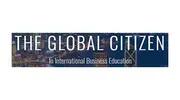
The Global Citizen
We find this collection of diverse papers and their summaries to be valuable and timely on how corporations can do better at doing good.
Helping Business Help Society: Overcoming Barriers to Corporate Social Innovation by Michael Barnett (Rutgers Business Review, Summer 2020)
This special issue intends to help corporations do better at doing good. I have brought together ten articles from leading business scholars that, from a variety of perspectives, recognize the challenges of corporate efforts to be more socially responsible and offer insights on how to overcome these challenges.
Helping Business Help Society: Overcoming Barriers to Corporate Social Innovation by Michael Barnett (Rutgers Business Review, Summer 2020)
This special issue intends to help corporations do better at doing good. I have brought together ten articles from leading business scholars that, from a variety of perspectives, recognize the challenges of corporate efforts to be more socially responsible and offer insights on how to overcome these challenges.

Chicago Sun Times
Grassroots development is more important than ever, because wealth generated in a community remains in and benefits that community. The Land Bank’s approach to development has generated $85 million in community wealth.
The Land Bank considers various factors in evaluating property development plans, including the strength of the plan, its positive impact on the community, the developer’s capacity to perform the work and ability to pay for it.
The Land Bank considers various factors in evaluating property development plans, including the strength of the plan, its positive impact on the community, the developer’s capacity to perform the work and ability to pay for it.

The Harvard Crimson
The Harvard Management Company added three biopharmaceutical companies — including a firm developing a coronavirus vaccine candidate — to its investment portfolio in the second quarter as the overall value of their public securities holdings dropped 28 percent.
John M. Longo, a professor at Rutgers Business School and the Chief Investment Officer for Beacon Trust, wrote that the drop in value this quarter is not necessarily indicative of the endowment’s poor performance.
“What's most probable is that the management team decided to reallocate equities to other investment areas, such as alternative investments,” Longo wrote in an emailed statement.
“Most equity markets around the world rallied strongly in Q2, so it is highly unlikely a diversified portfolio of equities fell 28% in value without changes to the asset allocation,” he added.
John M. Longo, a professor at Rutgers Business School and the Chief Investment Officer for Beacon Trust, wrote that the drop in value this quarter is not necessarily indicative of the endowment’s poor performance.
“What's most probable is that the management team decided to reallocate equities to other investment areas, such as alternative investments,” Longo wrote in an emailed statement.
“Most equity markets around the world rallied strongly in Q2, so it is highly unlikely a diversified portfolio of equities fell 28% in value without changes to the asset allocation,” he added.
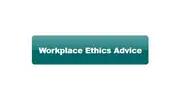
Workplace Ethics Advice
Workplace Ethics and Doing the Right Thing
I have blogged before about why good people sometimes do bad things in the workplace. Otherwise ethical people make the wrong turn or are influenced by others that are ethically-challenged.
According to Oliver Sheldon, assistant professor of management and global business at Rutgers Business School and co-author of a study of these issues published in the Society for Personality and Social Psychology. “We think part of the explanation for why people occasionally don’t behave ethically is their failure to confront and realize there’s a temptation”
In addition to acknowledging the temptation, the study suggests that people have to see it as one they might have to struggle with repeatedly, and that could potentially jeopardize their reputation and integrity. “Just thinking about temptation generally in advance essentially helps them to counteract temptation when they encounter it,” Sheldon said.
I have blogged before about why good people sometimes do bad things in the workplace. Otherwise ethical people make the wrong turn or are influenced by others that are ethically-challenged.
According to Oliver Sheldon, assistant professor of management and global business at Rutgers Business School and co-author of a study of these issues published in the Society for Personality and Social Psychology. “We think part of the explanation for why people occasionally don’t behave ethically is their failure to confront and realize there’s a temptation”
In addition to acknowledging the temptation, the study suggests that people have to see it as one they might have to struggle with repeatedly, and that could potentially jeopardize their reputation and integrity. “Just thinking about temptation generally in advance essentially helps them to counteract temptation when they encounter it,” Sheldon said.
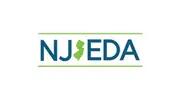
NJ-EDA
“Despite being one of the most diverse states in the nation, inequality continues to persist in New Jersey, especially in access to opportunities. Rutgers is proud to work with the NJEDA to begin dismantling these historic inequalities by identifying any existing disparities related to the New Jersey Wind Port project and recommending programs and policies to address both the immediate problem and the underlying causes,” said Kevin Lyons, Ph.D., Director of the Public Private Community Partnership Program at Rutgers Business School. “The Wind Port is an amazing opportunity for New Jersey to build a clean energy future while creating opportunities for businesses, and we look forward to helping the NJEDA complete the project in a way that distributes these economic benefits equitably.”

WalletHub
American Express 0% intro APR credit cards have no interest for up to 15 months on new purchases, balance transfers or both. WalletHub’s editors compared 30+ 0% Amex cards and chose their favorites based on how long the 0% intro rates last, what regular APRs are waiting, and how much you’ll have to pay in fees.
Ask the experts. Do you think the average person knows that not all American Express credit cards are charge cards?
No, I do not believe everyone is aware that Am Ex offers any “no fee” cards as traditionally their model has been fee-based. However, as consumers do recognize that option I do believe many will move to a no-fee option.
Marc Kalan, assistant professor of professional practice at Rutgers Business School.
Ask the experts. Do you think the average person knows that not all American Express credit cards are charge cards?
No, I do not believe everyone is aware that Am Ex offers any “no fee” cards as traditionally their model has been fee-based. However, as consumers do recognize that option I do believe many will move to a no-fee option.
Marc Kalan, assistant professor of professional practice at Rutgers Business School.

IEEE Computer Society
COVID Nearby uses crowdsensing to empower people to securely generate where it is present and how it spreads.
The key distinguishing feature of COVID Nearby is its strong privacy guarantee since it uses differential privacy.
Rutgers Business School’s Jaideep Vaidya, who is also an IEEE Computer Society Volunteer, received funding from the National Science Foundation to build a secure and privacy-protecting data platform. With that, he led the multi-disciplinary team of Rutgers professors in the development of COVID Nearby.
The professors include scientists from Rutgers Business School, the School of Public Health, the School of Communication and Information, who have expertise in epidemiology, behavioral analysis, and data privacy. COVID Nearby is being developed by the Rutgers Institute of Data Science, Learning, and Applications with support from the National Science Foundation.
The key distinguishing feature of COVID Nearby is its strong privacy guarantee since it uses differential privacy.
Rutgers Business School’s Jaideep Vaidya, who is also an IEEE Computer Society Volunteer, received funding from the National Science Foundation to build a secure and privacy-protecting data platform. With that, he led the multi-disciplinary team of Rutgers professors in the development of COVID Nearby.
The professors include scientists from Rutgers Business School, the School of Public Health, the School of Communication and Information, who have expertise in epidemiology, behavioral analysis, and data privacy. COVID Nearby is being developed by the Rutgers Institute of Data Science, Learning, and Applications with support from the National Science Foundation.

PK
Dave Wieneke leads PK’s focus on serving the digital experiences of healthcare organizations, establishing a baseline method of measurement as outlined in PK’s Hospital Digital Experience Index. He teaches about customer-centered management at Rutgers Business School.
Derek Phillips, Director of Content Strategy at PK, and I take a spin through COVID websites as hospitals evolve how they respond to the pandemic. We discuss both their merits and failings, as well as the data visualizations that pace the impacts of COVID. With a focus on Johns Hopkins, Cleveland Clinic, Spectrum and Stanford, we not only review their delivery of patient information on COVID websites but also how conversational interfaces are being used to help support patients as they navigate potential COVID symptoms.
Watch 15 minute webinar.
Derek Phillips, Director of Content Strategy at PK, and I take a spin through COVID websites as hospitals evolve how they respond to the pandemic. We discuss both their merits and failings, as well as the data visualizations that pace the impacts of COVID. With a focus on Johns Hopkins, Cleveland Clinic, Spectrum and Stanford, we not only review their delivery of patient information on COVID websites but also how conversational interfaces are being used to help support patients as they navigate potential COVID symptoms.
Watch 15 minute webinar.

Wall Street Journal
Pharmaceutical companies that are racing to develop vaccines for the coronavirus are already working behind the scenes to build the supply chains needed to deliver their drugs to billions of people as rapidly as possible.
To serve global demand once a vaccine is approved, a complicated and high-stakes supply chain would kick into gear on a scale that the drug industry has rarely seen.
The magnitude and speed of the effort creates the potential for lapses at each step that could cost invaluable doses.
Drug makers will even need to be on guard against criminal groups that target high-value pharmaceutical goods, said William McLaury, an associate professor of supply chain management at Rutgers Business School.
To serve global demand once a vaccine is approved, a complicated and high-stakes supply chain would kick into gear on a scale that the drug industry has rarely seen.
The magnitude and speed of the effort creates the potential for lapses at each step that could cost invaluable doses.
Drug makers will even need to be on guard against criminal groups that target high-value pharmaceutical goods, said William McLaury, an associate professor of supply chain management at Rutgers Business School.

Tap into Newark
As the district’s designated business-focused comprehensive high school, West Side will incorporate agribusiness education into the student learning experience, as well as environmental science and nutrition. Cook said students will focus on an artisan hot sauce called Rider Heat after the school’s sports teams, complete with a logo of a jalapeño riding a horse.
Newark Public Schools rolled out career academies at its comprehensive high schools in late 2019 and early 2020 as part of its district improvement plan. Rutgers Business School is West Side’s higher education partner and will be involved in the supply chain aspect of the hot sauce bottling and distribution.
Newark Public Schools rolled out career academies at its comprehensive high schools in late 2019 and early 2020 as part of its district improvement plan. Rutgers Business School is West Side’s higher education partner and will be involved in the supply chain aspect of the hot sauce bottling and distribution.

Rutgers Today
“Why is it that people who can execute multi-million dollar deals, who can persuade colleagues of ideas or who can handle conversations about raises and promotions with ease, stumble in negotiations with their kids?” asks Terri Kurtzberg, a professor at Rutgers Business School–Newark and New Brunswick.
Kurtzberg says that according to an informal survey of 2,000 parents, negotiations with their children occur on an average of six times a day, lasting about eight minutes each, or 24 hours a month.
The co-author of Negotiating at Home: Essential Steps for Reaching Agreement with Your Kid says even though these interactions may require the same skill set, the know-how that flows freely at work doesn’t easily cross the threshold into the home. Kurtzberg shares tips for managing tough conversations with children while at home during the coronavirus pandemic.
Kurtzberg says that according to an informal survey of 2,000 parents, negotiations with their children occur on an average of six times a day, lasting about eight minutes each, or 24 hours a month.
The co-author of Negotiating at Home: Essential Steps for Reaching Agreement with Your Kid says even though these interactions may require the same skill set, the know-how that flows freely at work doesn’t easily cross the threshold into the home. Kurtzberg shares tips for managing tough conversations with children while at home during the coronavirus pandemic.

Health News Digest
A multi-disciplinary team of Rutgers professors, led by Rutgers Business School’s Jaideep Vaidya, have developed the COVIDNearby app that allows individuals to report coronavirus symptoms with an assurance of privacy.
Vaidya, the director of the Rutgers Institute of Data Science, Learning and Applications and a professor of management science and information systems, said crowdsensing technology has been used to track the spread of the flu, but the coronavirus pandemic created an urgency to incorporate privacy enhancements.
Vaidya, the director of the Rutgers Institute of Data Science, Learning and Applications and a professor of management science and information systems, said crowdsensing technology has been used to track the spread of the flu, but the coronavirus pandemic created an urgency to incorporate privacy enhancements.
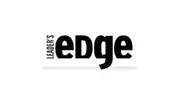
Leader's Edge
The future had to shelter in place this spring.
Growth-focused insurtechs, whose digital technologies have been revolutionizing the small-business market, faced a new reality as the coronavirus pandemic forced huge numbers of their customers into survival mode.
“Any business that is a service business, if they’re surviving, they may let their employees go,” says Jeffrey Robinson, academic director of the Center for Urban Entrepreneurship & Economic Development at the Rutgers University Business School. “People aren’t making decisions about closure at this moment. Three months from now, if you don’t see your business coming back, that’s where the decisions will be made. Then we’ll see the real impact.”
Growth-focused insurtechs, whose digital technologies have been revolutionizing the small-business market, faced a new reality as the coronavirus pandemic forced huge numbers of their customers into survival mode.
“Any business that is a service business, if they’re surviving, they may let their employees go,” says Jeffrey Robinson, academic director of the Center for Urban Entrepreneurship & Economic Development at the Rutgers University Business School. “People aren’t making decisions about closure at this moment. Three months from now, if you don’t see your business coming back, that’s where the decisions will be made. Then we’ll see the real impact.”

NJBIZ
The most influential men and women in the profession that keep the state’s businesses on track.
Albert Einstein changed the study of physics with his theory of relativity. As the director of Rutgers University’s Accounting Research Center, Miklos A. Vasarhelyi is doing something similar for accounting with his development of continuous auditing and reporting.
Historically, accounting has provided a rearview mirror approach to audits, looking back at historical records to gauge their validity. But Vasarhelyi — who began developing his groundbreaking approach in the 1980s when he was at Bell Labs — has helped to push the profession into a real-time approach by utilizing artificial intelligence and digital tools to analyze transactions and streaming data as they occur.
One example, “[u]nusual or fraudulent insurance payments,” he said. Under the continuous audit model, “you can examine transactions as they’re being processed and can consider the validity. If it’s outside certain boundaries, it can be stopped,” before a check is cut. The next horizon: using his analytic methods to predict events.
Albert Einstein changed the study of physics with his theory of relativity. As the director of Rutgers University’s Accounting Research Center, Miklos A. Vasarhelyi is doing something similar for accounting with his development of continuous auditing and reporting.
Historically, accounting has provided a rearview mirror approach to audits, looking back at historical records to gauge their validity. But Vasarhelyi — who began developing his groundbreaking approach in the 1980s when he was at Bell Labs — has helped to push the profession into a real-time approach by utilizing artificial intelligence and digital tools to analyze transactions and streaming data as they occur.
One example, “[u]nusual or fraudulent insurance payments,” he said. Under the continuous audit model, “you can examine transactions as they’re being processed and can consider the validity. If it’s outside certain boundaries, it can be stopped,” before a check is cut. The next horizon: using his analytic methods to predict events.

REWIRE
Negotiation is all about preexisting relationships and communication. If you're attempting to negotiate remotely, remember that it always helps to have a personal relationship with your boss.
Dr. Charles Naquin suggests having these conversations with your boss via video chat rather than email or text.
Dr. Terri Kurtzberg, professor of management and global business at Rutgers Business School, on the other hand, recommends a surprisingly lo-fi tool for remote negotiations: the telephone.
"When you're on a video call with someone, you're essentially sitting three feet from them. It's intimate," she said.
On the phone, you can free yourself of the face-to-face intenseness and distractions that come with seeing yourself on camera.
"If you promise yourself you won't make a decision on the call, the whole conversation will go differently. You can even announce that at the beginning, to lay out expectations and take some control."
Dr. Charles Naquin suggests having these conversations with your boss via video chat rather than email or text.
Dr. Terri Kurtzberg, professor of management and global business at Rutgers Business School, on the other hand, recommends a surprisingly lo-fi tool for remote negotiations: the telephone.
"When you're on a video call with someone, you're essentially sitting three feet from them. It's intimate," she said.
On the phone, you can free yourself of the face-to-face intenseness and distractions that come with seeing yourself on camera.
"If you promise yourself you won't make a decision on the call, the whole conversation will go differently. You can even announce that at the beginning, to lay out expectations and take some control."

TabbFORUM
For decades politicians have proposed taxing security transactions as a way to increase government revenues. While increases in personal and corporate taxes would also increase revenue, proponents argue that a security transaction tax (STT), unlike income taxes, would also discourage speculative trading and reduce volatility by, as James Tobin stated, “throw[ing] sand in the wheels of financial markets.”
In contrast, opponents of an STT argue that the tax harms market quality by reducing volume, increasing volatility, and adversely impacting price discovery. Recently, Greenwich Associates conducted a survey of Wall Street professionals as to their opinion of the impact of a Security Transaction Tax on market quality. The responders expressed fear that the imposition of a STT would do just that and harm market quality.
We examine a broad range of market quality measures, including: volatility; spreads; volume; market share; price impact; and price efficiency. We calculate changes in each measure of market quality before and after the change in STT. We control for variables known to be associated with each market quality measure.
We find that an increase in an STT is associated with an increase in average stock volatility (at least for larger STT levels). So rather than reducing volatility as proponents of an STT claim, STTs are directly related to volatility. STTs actually appear to cause the wheels of financial markets to slip and slide instead of slowing them down.
In contrast, opponents of an STT argue that the tax harms market quality by reducing volume, increasing volatility, and adversely impacting price discovery. Recently, Greenwich Associates conducted a survey of Wall Street professionals as to their opinion of the impact of a Security Transaction Tax on market quality. The responders expressed fear that the imposition of a STT would do just that and harm market quality.
We examine a broad range of market quality measures, including: volatility; spreads; volume; market share; price impact; and price efficiency. We calculate changes in each measure of market quality before and after the change in STT. We control for variables known to be associated with each market quality measure.
We find that an increase in an STT is associated with an increase in average stock volatility (at least for larger STT levels). So rather than reducing volatility as proponents of an STT claim, STTs are directly related to volatility. STTs actually appear to cause the wheels of financial markets to slip and slide instead of slowing them down.
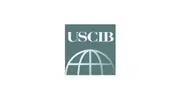
USCIB
The U.S. Council for International Business (USCIB), which represents many of America’s leading global companies, applauded the U.S. Trade Representative’s recent announcement of a select panel for the Rapid Response Labor Mechanism, a key tool for the enforcement of the United States-Mexico-Canada Agreement (USMCA) trade agreement.
“We welcome the inclusion of Ed Potter as one of the select panel members."
Potter is joined by Janice Bellace (Wharton School at the University of Pennsylvania), Lance Compa (Cornell University’s School of Industrial and Labor Relations), Peter Hurtgen (Curley, Hurtgen & Johnsrud LLP), Ira Jaffe (Arbitrator and mediator for labor, employment and benefits disputes) and Kevin Kolben (Rutgers Business School).
“We welcome the inclusion of Ed Potter as one of the select panel members."
Potter is joined by Janice Bellace (Wharton School at the University of Pennsylvania), Lance Compa (Cornell University’s School of Industrial and Labor Relations), Peter Hurtgen (Curley, Hurtgen & Johnsrud LLP), Ira Jaffe (Arbitrator and mediator for labor, employment and benefits disputes) and Kevin Kolben (Rutgers Business School).

NorthJersey.com
“As the State University of New Jersey, we have a critical role to play in helping the state navigate its way over the coming decades into a climate-positive future,” task force co-chairs Robert Kopp and Kevin Lyons said when they presented the report to Holloway. “Embracing that role wholeheartedly will allow us to serve as a global model for public and public-spirited universities in densely populated regions.”

Spotify
Does negotiating with your kids feel endless? On average, you’ll negotiate with them 6 times today about things like bedtime, screen-time, homework, and on and on. After much research – plus professional and personal experience in the world of negotiation – Dr. Terri Kurtzberg shares proven tactics that will help you better negotiate with your kids.

The FCPA Blog
It takes some imagination, but our virtual work environment — our new normal — can allow “valuable interpersonal networks to survive and even thrive,” according to two professors at the Rutgers Business School, Daniel Levin and Terri Kurtzberg. And compliance leaders are in a unique position, at a unique time, to be a “broker” of those interpersonal networks and a trusted source of information and camaraderie.

Supply Chain Management Review
The post-COVID education landscape doesn’t look much like its predecessor. From grade-school children being taught by their parents to high schoolers learning 100% virtually to questions about when or if the nation’s colleges will reopen for business, the only certainty is uncertainty.
Reflecting on pre-COVID executive education delivery methods, Lian Qi, associate professional and department chair at Rutgers Business School, says most of it was conducted in person because it provided the best opportunity for students to socialize and create bonds with one another. With social distancing, travel restrictions and limits on the size of gatherings affecting this traditional approach, Qi says schools like Rutgers are mixing things up and finding new ways to engage with students in the post-COVID world.
Reflecting on pre-COVID executive education delivery methods, Lian Qi, associate professional and department chair at Rutgers Business School, says most of it was conducted in person because it provided the best opportunity for students to socialize and create bonds with one another. With social distancing, travel restrictions and limits on the size of gatherings affecting this traditional approach, Qi says schools like Rutgers are mixing things up and finding new ways to engage with students in the post-COVID world.

The New York Times
The study published on Wednesday — conducted by Sterling Bone, a marketing professor at Utah State University; Glenn Christensen, a marketing professor at Brigham Young University; and Jerome Williams, a business professor at Rutgers University — shows that Black borrowers were at a disadvantage even before they submitted a loan application.

Virginia Tech Daily
“Consumers nowadays receive information from multiple media sources. They have shorter attention spans and are overloaded by and easily influenced by information,” said Rajesh Bagchi, professor and head of the Department of Marketing in the Pamplin College of Business. His new book, “Becoming a Consumer Psychologist,” is co-authored with Ashwani Monga, provost and executive vice chancellor of Rutgers University-Newark.

The New York Times
After years of declines in revenue and print circulation, the McClatchy Company, one of the largest and most respected news publishers in the country, announced on Sunday that it expected to be bought by Chatham Asset Management, a New Jersey hedge fund, at the conclusion of a bankruptcy auction.
John Longo, a professor at Rutgers Business School, said such ownership did not necessarily mean a disregard for journalism.
“Hedge funds are certainly profit-oriented,” Mr. Longo said. “If the business is not profitable, they’ll do what they need to to right-size it.”
He added: “If they look at the assets they are buying, part of their core purpose is to serve their community. If they don’t do a good job serving their community, the profits won’t follow.”
John Longo, a professor at Rutgers Business School, said such ownership did not necessarily mean a disregard for journalism.
“Hedge funds are certainly profit-oriented,” Mr. Longo said. “If the business is not profitable, they’ll do what they need to to right-size it.”
He added: “If they look at the assets they are buying, part of their core purpose is to serve their community. If they don’t do a good job serving their community, the profits won’t follow.”
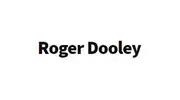
Roger Dooley
Listen to Podcast; full transcript provided.
Welcome to Brainfluence, where author and international keynote speaker Roger Dooley has weekly conversations with thought leaders and world-class experts.
Roger Dooley: Welcome to Brainfluence, I’m Roger Dooley.
Neal Schaffer: Hey, Roger. Hello, everybody. It’s an honor and a pleasure to be here today. My name is Neal Schaffer. I am a digital marketing author, speaker, consultant. I teach executives as part of the executive education program at a Rutgers Business School in the United States, the Irish Management Institute in Ireland, and the University of Jyväskylä in Finland.
My latest book is called the Age of Influence, and it’s really about hopefully redefining in some ways this concept of digital influence and how I believe marketers have in many ways most recently, vis-a-vis social media influence, I believe have been somewhat miseducated.
So I thought this would be great, Roger, and this podcast would be a great arena to discuss those issues and hopefully help a lot of the people that are listening.
Welcome to Brainfluence, where author and international keynote speaker Roger Dooley has weekly conversations with thought leaders and world-class experts.
Roger Dooley: Welcome to Brainfluence, I’m Roger Dooley.
Neal Schaffer: Hey, Roger. Hello, everybody. It’s an honor and a pleasure to be here today. My name is Neal Schaffer. I am a digital marketing author, speaker, consultant. I teach executives as part of the executive education program at a Rutgers Business School in the United States, the Irish Management Institute in Ireland, and the University of Jyväskylä in Finland.
My latest book is called the Age of Influence, and it’s really about hopefully redefining in some ways this concept of digital influence and how I believe marketers have in many ways most recently, vis-a-vis social media influence, I believe have been somewhat miseducated.
So I thought this would be great, Roger, and this podcast would be a great arena to discuss those issues and hopefully help a lot of the people that are listening.